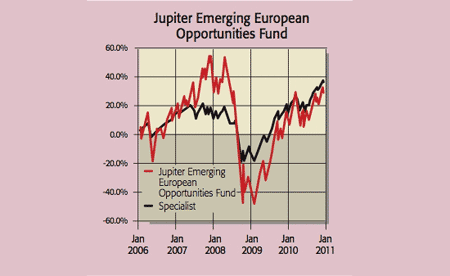
Russia’s bad image with investors means it is one of the least expensive emerging markets. But there are “many positives”, says Mark Dampier of Hargreaves Lansdown.
The Russian government is realising the need for foreign capital to help complete a large number of privatisations, and has become “far more welcoming of overseas money”. This “improved availability and lower cost of financing has been stimulating an accelerating recovery in consumer demand”, says Elena Shaftan, who runs the Jupiter Emerging European Opportunities Fund.
The high oil price is also boosting Russian stocks. While energy prices can be volatile, “I find it hard to believe the long-term future for the oil price is not upwards, and this should bode well for the Russian economy”, says Dampier. All of which is good news for investors in Shaftan’s fund, which is almost 60% invested in Russia.
Second on her list is Turkey, whose economy grew by 10.3% in the second quarter, “the same pace as China”, notes Shaftan. It has little domestic borrowing and its banks are strong. But despite the strong growth, the stockmarket remains the second-cheapest in the region after Russia.
The “long-term story of economic growth in emerging European economies has been rather forgotten about”, says Dampier. It has a well-educated population and is an important manufacturing base, benefiting from outsourcing by Western Europe. The fund, which has seen growth of 23.3% over the past year and 41.3% over five years, looks a good way to play the region, despite the steep total expense ratio of 1.9%.
Contact: 0844 6207602
Jupiter Emerging European Fund top ten holdings
| Name of holding | % of assets |
|---|---|
| Sberbank | 9.51 |
| Lukoil | 7.25 |
| Turkiye Garanti Bankasi | 7.07 |
| Gazprom | 6.29 |
| Mobile Telesystems | 5.96 |
| Rosneft Oil | 4.81 |
| KOC Holding | 4.42 |
| TurSynergy | 4.37 |
| Turkiye Is Bankasi | 4.09 |
| Turkiye Halk Bankasi | 3.79 |